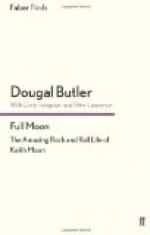“I suspect no one, at present,” returned Barrant. “I am merely glancing at the scanty facts within our knowledge and seeing what can be gathered from them. Robert Turold is found dead in his study, with his hands on an old clock, where he kept important papers, including his will. We are indebted to Austin Turold for that knowledge. But how did Austin Turold come to know that his brother kept his will in the clock-case? Did Robert tell him, or did he find it out? Was Austin aware of the contents of the will? Why did Robert go to the clock? Was his idea to destroy the will? And was that after or before he was shot, or shot himself?
“These are questions we cannot answer without further knowledge, but they seem to point to the existence of some family secret of which we know nothing. We must find out what it is. I shall first interview Austin Turold, and then call on Dr. Ravenshaw, if time permits. You’d better drop me at the churchtown on your way back to Penzance. There’s really nothing to detain you any longer.”
They returned to the churchtown in the motor-car, and Pengowan from the back seat directed the way to Austin Turold’s lodgings.
CHAPTER XIII
“Oh yes, I’m modern enough,” said Austin Turold, balancing his cigarette in his white fingers, and glancing at Barrant with a reflective air—“that is to say, I believe in America and the League of Nations, but not in God. It’s not the fashion to believe in God or have a conscience nowadays. They both went out with the war. After all, what’s a conscience to a liver? But here I am, chattering on to distract my sad thoughts, although I can see in your eye that you have it in you to ask me some questions. Well, go ahead and ask them, and I will answer them—if I can.”
“I do wish to ask you some questions,” said Barrant—“questions connected with your brother’s death.”
“I know very little about it. It was a most terrible shock to me, I assure you, and is likely to detain me in this barbarous place longer than I intended—greatly against my will.”
“I understand you came to Cornwall at your brother’s request?”
“Yes. My brother sent for me and my son more than a month ago, so we came at once. I’ll forestall the further inquiry I see on your lips, and tell you why I came so promptly. My brother Robert was the wealthy member of the family, and I was the poor one—a poor devil of an Anglo-Indian with nothing on this side of the grave but a niggardly Civil Service pension!
“When we arrived I found that Robert had already taken these lodgings for us, which was as near as he could get accommodation to his own house. I did not object to that arrangement, because I do not like hotels nowadays—not since the newly-rich started to patronize them. So here I’ve been rusticating ever since, conferring daily with my poor brother, and eating the four meals a day which




